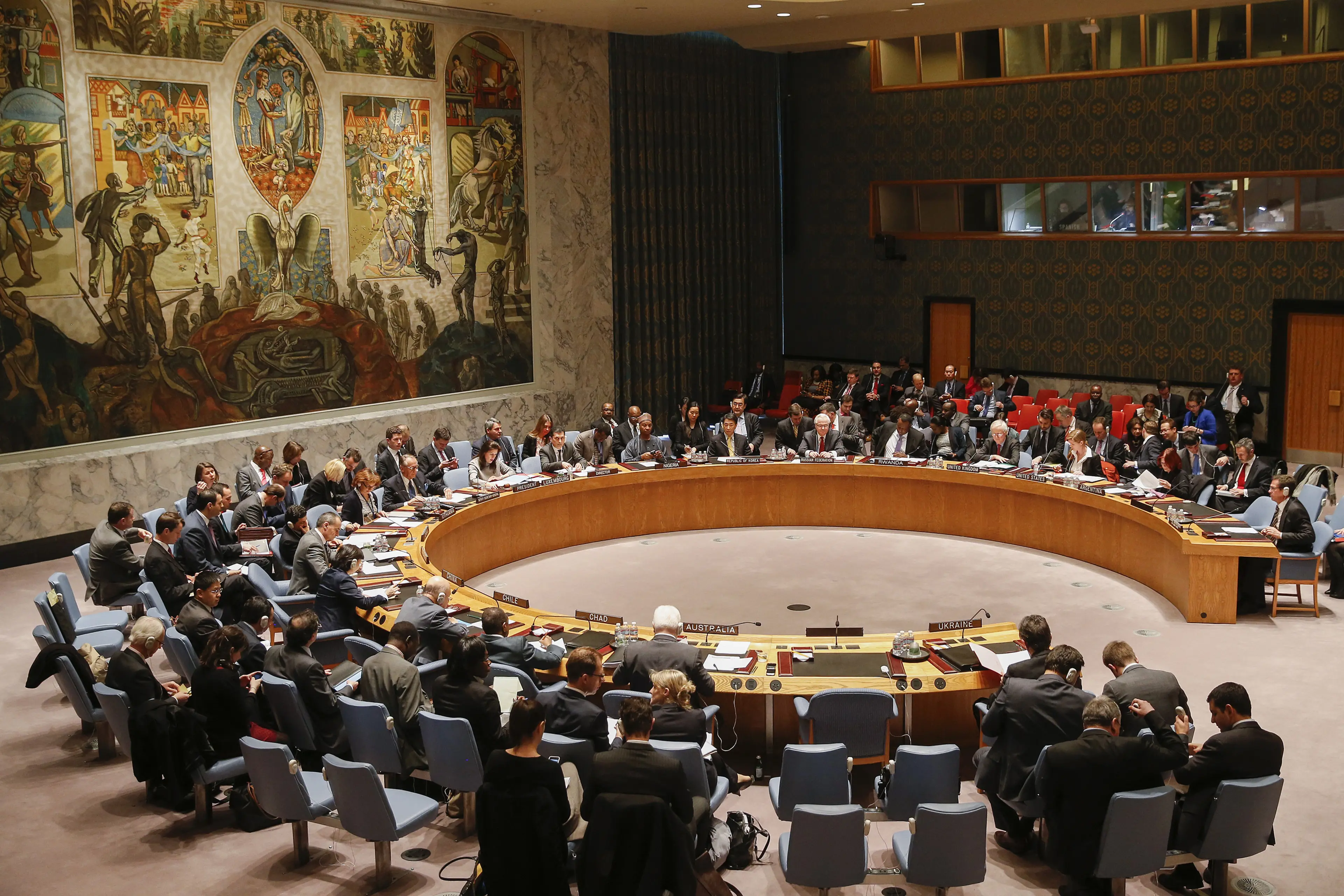UNSC President Unveils May Work Agenda
The Security Council will convene its signature event of the month on 20 May – an open high-level debate on maritime security, held under the overarching theme of maintaining international peace and security, the Council’s President for May announced today at a United Nations Headquarters press conference.
Evangelos C. Sekeris of Greece, whose country holds the rotating presidency of the 15-member organ this month, told reporters that the event – titled “Strengthening Maritime Security through International Cooperation for Global Security” – will be chaired by Greece Prime Minister Kyriakos Mitsotakis. UN Secretary-General António Guterres will serve as the main briefer, and the President of the Board of Directors of the Union of Greek Shipowners will also address the Council.
Greece has “elevated” the representation to the highest political level to highlight the strong interest Athens places on this critical issue – as a UN Member State, a maritime nation and “home to one of the world’s largest merchant fleets”, Mr. Sekeris said.
He emphasized that many Member States recognize the critical importance of maritime security, particularly the need to protect freedom of navigation, secure global supply chains and raise awareness of the complexities and gravity of maritime threats.
Looking ahead, the Council will also hold its annual open debate on the protection of civilians in armed conflict on 22 May, which will be elevated to ministerial level and chaired by the Minster for Foreign Affairs of Greece, Giorgos Gerapetritis. Several senior UN officials and a representative of civil society are expected to brief the organ. He said Greece during its Council presidency will aim to highlight the vital role of this annual debate in safeguarding women, children and other vulnerable populations during armed conflict.
He noted various other highlights on the calendar. On 6 May, the Council will convene its semi-annual debate on the situation in Bosnia and Herzegovina; on 14 May, it will hold its monthly briefing on the situation in Yemen, followed by a briefing on Libya on 16 May by Karim Khan, Prosecutor of the International Criminal Court.
On 21 May, under Greece’s presidency, the Council will conduct its monthly open briefing on the situation in Syria, he continued. On 27 May, the organ will hold elections to appoint a new judge to the International Court of Justice. Finally, on 28 May, the Council will hold its monthly briefing on the situation in the Middle East, with a focus on the Palestinian question.
When asked by reporter about whether the Council is considering meeting on the situation in South Asia, he said that the organ is seized of the matter. “It is an issue that is ongoing and evolving,” he added, recalling that the Council had recently released a statement condemning the attack in Jammu and Kashmir. He expressed concern for the growing tensions between India and Pakistan. If the situation does not de-escalate, the Council can certainly meet on the issue.
Asked whether it will add any meeting on non-proliferation “hotspots”, given that “there is a lot going on” with Iran, Ukraine and the Democratic People’s Republic of Korea, he said that, while there is no mandated meeting, “we can expect” for something to come up to fill up one of the empty slots.
On Ukraine, he said that, while it is not in the programme, it is one of the issues that will be included in the Council’s agenda. “We are ready to respond to a request,” he added, also emphasizing: “There is a lot of things going on there and we have to follow it very closely.” A ceasefire in Ukraine should lead to a just, comprehensive and lasting peace, upholding that country’s sovereignty and territorial integrity, he added.
Asked why Greece is not calling for an emergency meeting on Gaza, he said that there is the 28 May meeting, but “of course there will be meetings asked [for] before”. “We have a position of principle and attach importance to addressing the humanitarian situation in Gaza,” he said, also calling for the release of all hostages. He also expressed hope for the upcoming international conference on the matter co-organized by Saudi Arabia and France.
When asked to comment about the Panama and Suez Canal in connection to Greece’s maritime security debate to be held, he said that the Suez is being affected by the situation in the Red Sea “where we have had many attacks” by the Houthis. He said that in the Panama case there are no maritime security issues.
Asked about the cross-border terrorism in South Asia and growing tensions between India and Pakistan, he said it is a very pertinent issue and strongly condemned any act of terrorism. The size and volume of the growing tensions is very concerning, he added, reiterating calls for de-escalation and dialogue. He said that Greece as President of the Council will follow the issue closely.
Asked about the developments in Syria, he said that he “is monitoring the first moves” of the new Government. “There is some optimism, but it has to go step by step and we have to see it,” he added. Asked about the challenges faced by the United Nations Interim Force in Lebanon (UNIFIL), he said that the Council remains seized of the matter and will continue to support UN efforts in Lebanon. “I think the situation is improving and we can be a little more optimistic,” he added.
When asked about whether Greece will introduce the issue of migration into any of its debates, he said there is no specific discussion on migration on the Security Council agenda for now but certainly the issue will be discussed in country-specific discussions and debates.
For the full programme of work, please see: www.un.org/securitycouncil/events/calendar .
https://press.un.org/en/2025/250501_sc.doc.htm
View Original | AusPol.co Disclaimer
